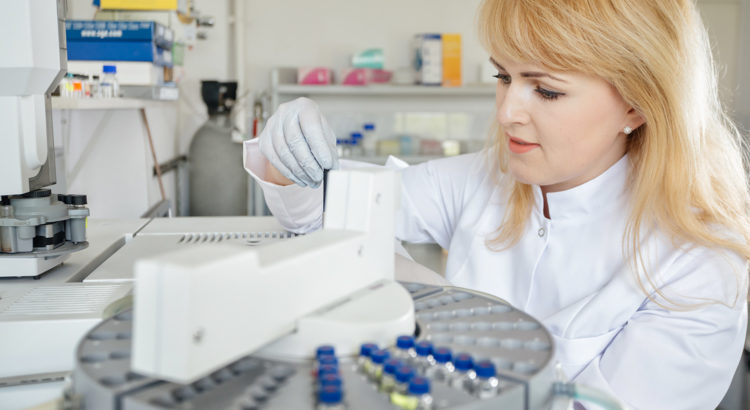PhD student from the Institute of Animal Reproduction and Food Research PAS in Olsztyn investigates the influence of prebiotics-enriched gluten-free diet on alleviating harmful effects of celiac disease in children. The study will be aided by the funds obtained in the National Science Centre PRELUDIUM call.
Celiac disease affects every one in a hundred children. It is an autoimmune disorder caused by a reaction to gluten found in food. In the human body affected by this disease gluten leads to intestinal inflammation and shortening of villi lining, reducing absorption potential of the intestine.
Celiac disease cannot be cured. The patient struggles with this condition for their entire life. There are no drugs, no surgery that would prove effective in fighting this harmful reaction. However, the patients may seek remedy in a life-long strict gluten-free diet, which will alleviate the effects of the disease such as chronic inflammation, disturbed absorption or deficiency in vitamins and minerals.
— By introducing prebiotics to the diet, we want to improve the health status of children suffering fromceliac disease – says Natalia Drabińska, coordinator of the project.
Prebiotics are substances found in or introduced to food in order to stimulate the development of beneficial intestinal bacteria and, thus, to improve overall health status of patients. Their crucial role involves a change in the composition of microorganisms in a human body, leading to a reduced number of harmful bacteria and increased number of those beneficial to the host. Prebiotics occur naturally in food but may also be used as additives. Unlike probiotics, they do not contain any microorganisms, but only stimulants.
In the research planned in the project, Natalia Drabińska will introduce to the diet of children affected with celiac disease fructans of the inulin type, which belong to the prebiotics group. The primary source of inulin constitute still poorly recognized plants like chicory and topinambour. However, they may also be found in onion, leak or garlic. Consumption of these products have been numerously proved to exert a positive effect on the human organism.
In her scientific studies, Natalia Drabińska will examine volatile organic compounds in the urine. It is a non-invasive method that does not provoke any stress in children. The samples necessary will be obtained from young patients suffering from celiac disease, who are under medical supervision of the Gastrointestinal Clinic of the Regional Specialised Children Hospital in Olsztyn. Children will be divided into two groups – 1) given prebiotics – fructans of the inulin type, and 2) given placebo.
Urine contains various compounds which first entered the bloodstream and got excreted by the kidneys. Every disturbed functioning of the body may be reflected in the profile of compounds present in the urine. Since children with celiac disease are strongly susceptible to disturbed intestinal permeability, the metabolites which should be excreted from the body, may leak into the bloodstream and further to the urine via kidneys.
— I will, therefore, investigate the quantitative and qualitative composition of the urine of children with celiac disease, to determine whether prebiotics-aided diet may reduce intestinal permeability and improve the well-being of young patients suffering from this disorder – concludes Drabińska.
